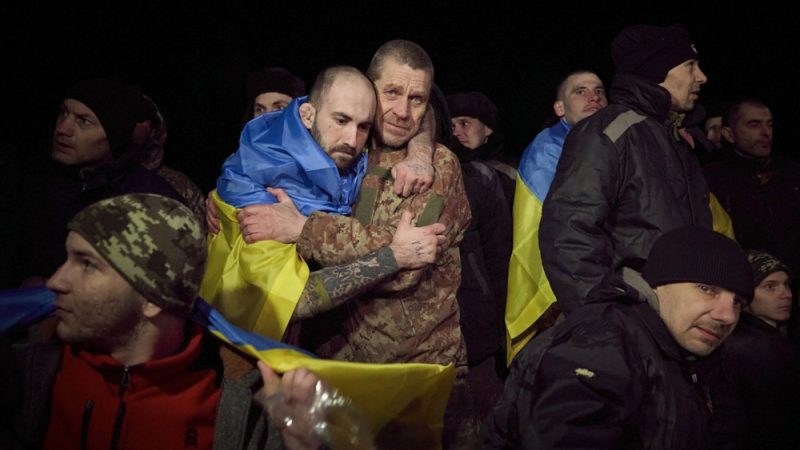Russia and Ukraine have finished another prisoner swap; the most recent one involved 190 prisoners of war arranged by the United Arab Emirates (UAE). With each other trading 95 detainees apiece, the UAE’s sixth successful prisoner exchange this year marks both countries.
Announcing the trade on Telegram on July 17, Russia’s Defense Ministry said, “The released [Russian] servicemen will be delivered to Moscow by military transport aircraft of the Russian Aerospace Forces for treatment and rehabilitation in medical institutions of the Russian Ministry of Defense.” Expressing thanks for the UAE’s help, Ukrainian President Volodymyr Zelenskiy also verified the transaction on Telegram. “I am appreciative of our team engaged in prisoners’ exchange as well as the United Arab Emirates for enabling the release,” Zelenskiy said. “We search for everyone who might be in captivity regardless of difficulty. Everyone needs to be returned.
Released Ukrainian detainees included border guards, National Guard servicemen, and military forces personnel. Both countries are always working to solve humanitarian issues within the war by means of this dialogue.
Beginning on January 3, 2024, the UAE participated in prisoner exchanges wherein 230 Ukrainian nationals returned to Kyiv and 248 Russians freed by Ukraine. After that, another trade under a “100-for- 100” arrangement took place on February 8. The UAE helped to arrange a transfer wherein ninety captives from each side returned to their respective nations last month.
Present during the most recent meeting were Russian Ombudswoman Tatyana Moskalkova and Ukrainian Ombudsman Dmytro Lubinets, who discussed cooperative humanitarian projects including those pertaining to family reunion. These conversations point to a cooperative approach to handle the more general humanitarian consequences of the war.
Keep Reading
Considered a war crime under international law, the forced deportation of Ukrainian children to Russia resulted in arrest warrants for Russian President Vladimir Putin and Children’s Rights Commissioner Maria Lvova-Belova issued by the International Criminal Court issued in March last year. Notwithstanding these difficulties, numerous Ukrainian youngsters have since returned to their own country.
The UAE’s proactive mediation of these interactions emphasizes its dedication to humanitarian endeavors and communication in conflict resolution. Hundreds of detainees have been released thanks to the effective exchanges, therefore proving the value of global collaboration. Russia and Ukraine have both officially admitted the UAE’s critical importance in these humanitarian projects.
The UAE’s consistent support of prisoner exchanges highlights the need of worldwide cooperation in handling humanitarian crises and promoting dialogue to help to de-escalate tensions as the conflict between Russia and Ukraine persists.

